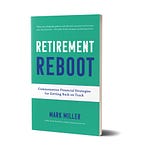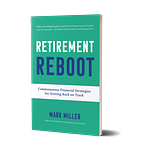Last week, Medicare announced the next phase of its plan to transform traditional Medicare. Critics argue that the planned transformation of the fee-for-service program will amount to a dramatic expansion of privatization.
And, if you are enrolled in traditional Medicare, or expect that you will be in the future know this: no matter if you want it or not, Medicare plans to enroll you in this new model by the end of this decade, as early as next year in some cases.
Millions of retirees have opted out of traditional Medicare over the past two decades. Instead, they have joined Medicare Advantage, which is a privatized, managed-care version of the program. But the choice between those two options might not be in their hands much longer.
Medicare has been quietly testing a new model for traditional fee-for-service Medicare. Medicare enters into contracts with healthcare provider groups that receive a flat annual payment to provide care for enrollees in the traditional program.
Up until this point, Medicare called the health care contractors involved in this experiment “Direct Contracting Entities,” but starting next year they will be known as Accountable Care Organizations, or ACOs.
The concept of ACOs is not new - many health care experts say they have the potential to improve health care by incenting healthcare providers to work together as teams. But this particular version of ACOs is drawing criticism from some health policy experts, who view it as unwarranted - and unwise - further privatization of Medicare.
The new model launching next year is called ACO REACH. The word REACH is an acronym, standing for Realizing Equity, Access, and Community Health. Medicare is pitching the program as a way to advance health equity for underserved communities. And that’s a very laudable goal. But ACO Reach providers actually will have much in common with Medicare Advantage, Like Advantage plans - which usually are HMOs or PPO plans - ACO Reach plans will create networks of preferred healthcare providers, and they can retain as profit the portion of the annual per-patient payments that are not spent on healthcare.
A big worry here is the rush of private equity firms and other investment groups into the business, which points to even more privatization of Medicare than we’ve seen already.
And here’s something important to know if you are enrolled in traditional Medicare, or expect that you will be in the future. Medicare plans to enroll everyone who uses traditional Medicare in an ACO by 2030. And starting next year, if you live in an area where a REACH ACO operates, you can be assigned to one without your consent.
This week on the podcast: Joining me on the program this week to talk about the REACH ACO model is Dr. Ed Weisbart. Ed is a family medicine practitioner. And he chairs the Missouri chapter of Physicians for a National Health Program, a national group of 21,000 physicians and other health professionals who support single-payer national health insurance. PNHP has taken a leading role in opposing Medicare’s ACO plans.
I’ve been really surprised that this topic hasn’t surfaced much in general media yet, considering its importance to millions of seniors. After Medicare announced its plans for ACOs last week, it seemed like a good idea to turn up the volume a bit.
Click the player icon at the top of this post to listen to the podcast. The podcast also can be found on Apple Podcasts and Stitcher.
Further reading on Medicare ACOs
A quiet experiment is testing further privatization of Medicare
Medicare Advantage, Direct Contracting, And The Medicare ‘Money Machine,’ Part 1: The Risk-Score Game.
Medicare Advantage, Direct Contracting, And The Medicare ‘Money Machine,’ Part 2: Building On The ACO Model
Biden Pursues Trump Plan That Creates Big Profits by Denying Health Care
Trump-era Medicare program under increased scrutiny
Physicians for a National Health Program - page of resources on ACO Reach.
What I’m reading
IRS releases long-awaited Secure Act RMD regulations . . . Medicare’s finances and the saga of the Alzheimer’s drug Aduhelm . . . The pandemic pummeled long-term care – it may not recover quickly.














